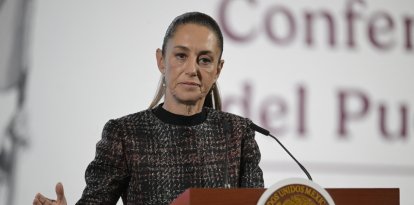Ukraine did not warn the White House of its surprise attack on Russian nuclear bombers
The secret operation, which was planned for more than a year, destroyed more than 40 Russian strategic bombers.

Zelenski meeting with the head of Ukraine's Security Service
Ukraine on Sunday launched a surprise attack on Russian air bases without first informing President Donald Trump or senior White House officials.
The secret operation, planned for more than a year and executed with drones smuggled into Russian territory, destroyed at least 41 strategic aircraft, including Russian nuclear bombers such as the TU-95 "Bear" (known as the apocalypse deterrent), the A-50 "Mainstay" command and control aircraft, and fast-attack bombers TU-22 "Backfire," according to media reports such as Fox News, Axios, and the Kyiv Independent.
President Donald Trump, the State Department, and his team in general received no notice of the Ukrainian offensive despite it being the most impactful and forceful inside Russian territory since the start of the war.

World
Russia steps up attacks against Ukraine with 90 drones and two ballistic missiles
Agustina Blanco
The decision not to warn the White House reinforces the fact that tensions between Kyiv and Washington have been in crescendo since Trump returned to the White House.
While Trump spent Sunday playing golf with Bryson DeChambeau in Virginia, the Ukrainian attack shook the Russian military apparatus, which was not expecting a move of such magnitude just before a new round of talks between the Ukrainian and Russian delegations in Istanbul, where Kiev will present its latest peace proposal.
The attack also comes against a backdrop of growing frustration from Trump toward Zelensky and Putin. In recent months, the U.S. president has criticized both leaders for, according to him, hindering the possibility of reaching a peace agreement, a central promise of his election campaign.
Trump, moreover, has gone out of his way to present himself as an objective mediator between Moscow and Kyiv, even presenting a cease-fire plan that was accepted by Ukraine but not by Russia, prompting the president to charge all sides.
“This isn’t my war. This is Biden’s war, Zelensky’s war, and Putin’s war,” Trump told reporters.
Meanwhile, bipartisan calls are growing in Congress to increase sanctions against Russia and send more weaponry to Ukraine, as happened during Joe Biden's tenure.
However, Kiev's decision to act without consulting Washington could generate reluctance and further erode U.S. political support in the midst of negotiations.




























